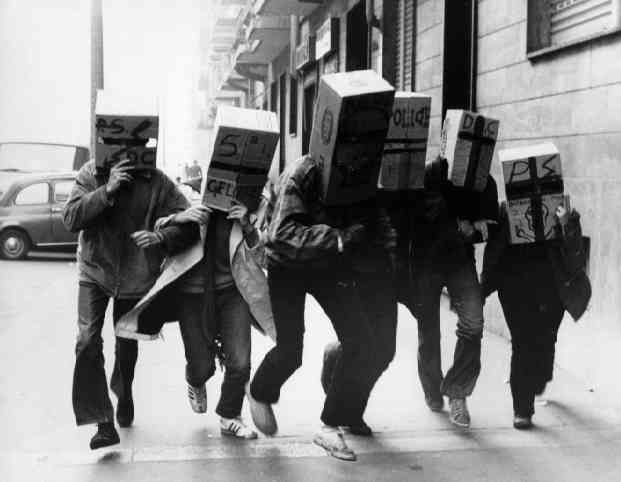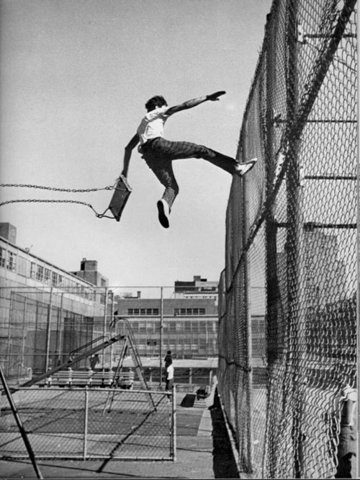This is the latest in our worker enquiry articles. The author is a member of Plan C Manchester
Job Title: Charity street fundraising team member
Wage: 8.50 per hour (no commission)
Hours: 6 hours per day, 5 days a week
The job was simple. Working as a member of a major hospice and nursing charity street team my role would be to sign people up for regular monthly payments to the charity. These ranged from “as little as 4 pounds a month” to the tenner a month we were trained to open with. Equipped with yellow branded coats and iPads we were set loose on a general public trying their best to avoid our fake smiles and predictable patter on their way to and from work. I’d found the job through an agency, looking for work I would consider easy enough to bother with and vaguely worth getting out of bed for. The interview was quick and easy with the nature of the role pretty obvious from the minimalist Northern Quarter office with its smell of bullshit and hardwood flooring. Neither an essential industry or one placed for decent agitation or research among the class, the role had limitations. As such this report concludes that the industry, while interesting, is better suited as a grounds for recruitment than for a targeted agitation campaign. Communists wishing to ‘salt’ or organise within certain industries should concentrate on logistics or the essential economy, rather than the novel but nowhere near as important charity sector.
The two days (unpaid) training were part technical and part indoctrination: we were trained in how to use the iPads, how to speak to the public, and drilled with facts about the charity, what it does and what it wants to do. We were told we’d be paid for the training after a certain number of weeks, but due to the high turnover I don’t know how many chuggers eventually received this money. I know I didn’t work there long enough to get it back. We were given safeguarding training which we were told was very important to the charity, given recent media shit storms about vulnerable old people being driven to suicide by charity harassment. Obviously the charity was keen to appear to keep their hands clean. We were told that 70p of every pound donated on the street went to the cause and 30p went to the reproduction of the charity. But a breakdown of what that actually meant wasn’t provided and the vast majority of the charities earnings came from business donations and grants from the state, not from the money raised from the street team. We were expected to get 7 sign ups per week per person but this was very rare and even the more experienced members rarely hit their targets. This often led to panicked calls from managers during the day to ask us to explain why we as individuals or a team weren’t hitting them. This was awkward and humiliating but rarely had an effect on our performance. If you consecutively failed to hit the targets you were put on a “rescue plan” involving retaking the training and then being given a week to reach the target. Failure for this led to dismissal. Due to the low number of sign ups, the role certainly seemed more performative than practical for the charity. I suspect that we were essentially walking bill boards to remind people of the charity’s existence rather than a productive method of acquiring real donations. The potential pointlessness of the work was something that kept niggling at the back of the mind whilst stood on a desolate North Western high street in the rain and wind desperate for a piss and smiling at some old dear about her dead husband.
A street team consists of between 2-5 people with one team leader, generally the more experienced worker there but sometimes, I heard, they fast-track people with higher education qualifications to team leader with the assumption that they might just be better. We were promised wage increases and chances to be entered into lotteries with a ticket for each sign up we got – but I never saw these promises as I worked there for a short time. However, from speaking to the workers with more experience they couldn’t remember getting or hearing others get them. Promotion seemed ill thought out and rushed; people with no experience were sometimes made team leader. Although the role was unlike that of a line manager or foreman, rather the team leader seemed to be someone who got the blame if we messed up. The teams themselves were made up of people with various experiences and backgrounds but demographically seemed to be young white people who’d just left university or people from a call center or service background looking for something less monotonous.
Generally, team members were politically engaged but not politically active. Conversations about the environment, Jeremy Corbyn and the latest political hot topics were common. Alongside this was normal workplace conversation about the management and the charity, specifically its separation from what we experienced as members of the street team. Talk of skiving and sabotage were much more common than any other workplace I had worked in, we would frequently take unannounced breaks: just to doss about, or sit down and smoke out of the uniform when we should be on the job. This felt good, we were reclaiming our time at work and socialising with each other instead of having hard and unpleasant conversations with the public – what also encouraged this was the sinking feeling that the work itself was actually basically pointless.
Despite looking like a good place to organize other elements at play make it harder than it may seem. The first problem being one of practicality: you don’t know who or where you will be working the next day until the team leader texts you at about 7PM. Although the charity will pay for your train ticket, having to travel to work in different town centers across the North West every day is made tiring and disorientating by its unpredictability. The second problem is more that of ideology, most of the workers genuinely cared about their work and commonly advocated staying later at a site to try and get one or two more sign ups. Often having skived during the day, maybe they felt guilty about slacking doing charity work, worried about targets, or were just proud enough of the work that they did. While it’s hard to fault them for looking for meaning in their labour this didn’t match up with their criticism of the management and the charity. There was a contradiction in the way that they spoke about the charity in their imagination and the things they said about the actual work.
The work itself was relatively easy but boring and exposed to the weather; I worked during the late winter in the North West which meant it was pretty grim. There were strict rules on clothing as well, the top layer had to be the thin plastic yellow coat or vest meaning you couldn’t wear thicker winter coats, often there was some rebellion though and we tended to use the weather as an excuse to spend half an hour in McDonalds getting “a quick coffee”.
The worst part of the job was the emotional labour you were expected to perform. For just above minimum wage I was expected to be an impromptu shrink for the many people that came up who often ended about dead or dying loved ones. We were expected to smile sadly, by sympathetic, and keep up conversation until we could turn away and start looking for other potential sign ups. While street therapist is a great name for my album drop, it was hardly in the job description. As well as this there was abuse from passersby who took issue with charity chugging as well as police and security guards who often took the opportunity to flex their authority demanding we show ID and explain why we were there. This could be nerve wracking although it was unlikely we would be arrested or searched there was one incident in Leeds where two police officers spent half an hour standing next to us, presumably looking for a reason to give us a bollocking. The worst of all were the loved ones of people the charity had not been able to help, who came at us grieving and angry demanding we – the agency street team – explain why their loved one had been denied help by the charity. Of course, ever the opportunist, the training had equipped us with the perfect line for this occasion “I’m terribly sorry but with your small donation we can make sure this doesn’t happen again”.
Another aspect of the work, increasingly common in these areas of temp minimum wage employment like warehouse work and service work, was the constant observation. Management in the local office could monitor our sign ups and (official) breaks via the IPad, as well as frequently coming on site and observing us from a distance. Although the plus side of the line manager turning up to tell us to hit our targets and make sure we weren’t just getting stoned and dossing about was that they often brought us donuts or coffee – attempting to buy us off with bullshit about ethical labour and the idea we were one big charity team by turning up with a bollocking and a Mocha latte. The atmosphere gave way to suspicion and there were even rumors that the IPad had a mic but this may have just been paranoid Chinese whispers. Despite the attempts at soft management the environment led to an “us against them” mentality. We were scared of management who frequently fired workers or turned up unannounced to tell us whether we were on target today. The stress of the job and the demographic on the shop floor led to an unexpectedly high turnover of workers.
On my last day working for the charity, a woman who had been in the role for over 2 years and genuinely seemed to love the charity was sacked for making a computer error. She had accidently put in the wrong date of birth for a sign up, he was 18 and she had written down the wrong date making him look 16 years old on the file. This was a safeguarding breach and she was called to let her know that she no longer worked for the company, to take off her uniform and the local manager would be enroute to speak to her in person. Word soon spread to our site, we were angry and felt this was an injustice. We soon began planning what we were going to do about it, we’d talked earlier in the week that I and another worker were planning to quit soon – we’d both got something better lined up – and the remaining member of our team was unsure but wasn’t living paycheck to paycheck. At the end of the day when the local manager arrived to take in the equipment and the days reports (he also brought chocolate donuts from Greggs) we all said that in protest of the other worker being sacked, unfairly and for an honest mistake, we were all quitting. This left the charity with only 1 charity street team for the next day and they would have to pay fines on the space they had booked. The manager smiled his cool smile and said thats “that’s fine we’ll see what we can do”. When I last spoke to a worker at the charity our fellow worker had been re-employed – maybe not solely due to our action, but because we had the opportunity to do so we had taken it without formal direction or a union official. The other two workers who had left with me were also re-employed, one on a higher wage. I had had enough, however, I wasn’t going to be standing in the rain as a glorified and highly monitored bill board for a charity more concerned with its public reputation than apparently its workers or patients.
Conclusions: Generally, the charity sector would be an easy ground to organize in, the demands are clear for better conditions, and spontaneous action is easy. The level of monitoring and social control on the “shop floor” looks to be the future for all industries today and starting to organise against it here could teach us lessons on how to fight it in other sectors. However, the charity sector is not at all an essential industry vital for the national economy or political stability. While it might be interesting to critique the ideology of charity in a capitalist society, tactically focusing a lot of effort on this industry while ones such as essential production, distribution, and logistics exist is a waste of energy. The main use of the charity sector could be as a fertile recruitment ground for militants and organizers to build what is necessary today, local networks of militant workers in different industries willing to support each other’s workplace and social struggles outside of the standard union or leftist structure.



